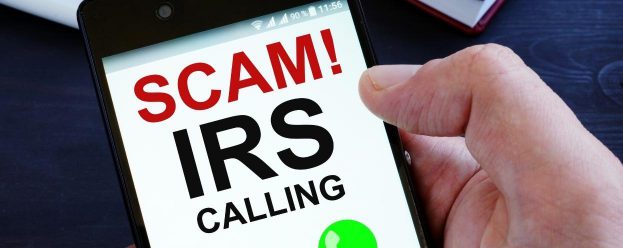16th Mar 2015

Estimated reading time: 3 minutes
Scammers Exist Because They are Successful. Educate Yourself So you Do Not Fall For Their Scare Tactics!
In January the IRS issued its annual “Dirty Dozen” tax scams for 2015. Tops on the list is aggressive and threatening telephone calls purporting to come from IRS agents. “Phishing” for personal information through the use of fake emails and websites also made the list. Callers often target the elderly, immigrants and others they believe to be highly susceptible to their scare tactics. The caller may claim to be from the IRS or U.S. Treasury and give a name and badge number. Some scammers even alter the caller ID information so the call appears to come from the IRS. The caller may specify an exact amount of an alleged debt owed to the IRS and the method of payment to be used. Often the caller suggests payment via credit card or prepaid debit card. If the caller encounters resistance, he may issue threats that law enforcement is poised to make an arrest within minutes if payment is not immediately made.
Scammers also send emails that look official and include the well-known IRS logo or purport to be from the Electronic Federal Tax Payment System (EFTPS). The emails request personal identification information so that the scammer can steal your identity.
These scams persist because they are successful. Since October 2013, over 290,000 of these types of contacts have been reported to the Treasury Inspector General for Tax Administration (TIGTA) and some 3,000 victims have paid over $14 million. Those are just the calls and payments that have been reported. The numbers are likely much higher.
How can you tell if you have been contacted by scammers? The IRS never uses these common scammer methods:
- Calls or emails to initiate contact about amounts owed or refunds. It will first mail you a bill if it believes you owe taxes.
- Demands payment without an opportunity to question the amount you owe.
- Requires a specific method of payment.
- Asks for credit or debit card numbers by phone.
- Threatens to have you arrested for not paying the amount the caller demands.
What should you do if you suspect a scam?
- Do not give out any personal information and do not make payments.
- Do not click on links in an email that claims to be from the IRS.
- Make note of the name and phone number or email address from which the contact came.
- Report telephone contact to the TIGTA at 1-800-366-4484 or www.tigta.gov.
- Make a report to the Federal Trade Commission at www.ftccomplaintassistant.gov and include “IRS Telephone SCAM” in your comments.
- Forward unsolicited emails to www.phishing@irs.gov.
- Contact local law enforcement.
If you have any questions or would like some more information regarding this topic of scammers, contact attorney Katherine Albrecht at the Beier Howlett Law firm.
Written by Katherine Albrecht
Related Articles


